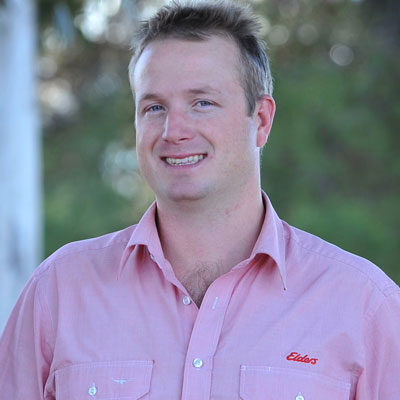
Heath McWhirter
Regional Winner | Innovator category
Griffith, NSW
Heath McWhirter is an adviser at Summit Ag Consulting, the Founder of Yacker and a 2020 Growth Awards Regional Winner in the Innovator category. Read on to learn more about Heath.
What’s the one thing you have done in your career you are most proud of?
I was one of the key people to establish the cotton industry in southern NSW. When I arrived in the Griffith area in NSW, the cotton industry was very small. Given my background as an agronomist growing cotton with the Twynam Agricultural Group, I was able to assist growers which resulted in my employer, Elders Ltd, having the largest cotton business in southern NSW and, one of the largest in the state. It was the ability to draw on my knowledge and experience as a production agronomist with Twynam, that enabled me in the first five years to help growers starting out and assist with inquires. The end result is an industry that is well established in the Murrumbidgee and Murray irrigation areas.
How will you share what you learn with others in the industry?
I have been involved with the development of an app that we have called Yacker, with the 2.0 version about to be released. We are hoping to take on Twitter! More seriously, it is an app which is developed along the lines of Twitter, where you can share information and photos, but it is specifically aimed at agriculture. It gives people a forum to share information and ideas and it is free to participate. In agriculture, people are often in cars or tractors or utes, so this has the capacity to be able to phone someone as well as enter text. You can select industries that you want to be part of, so if you are growing cotton, you don’t see the information about blueberries. It was developed to share agricultural information and the feedback we have had is really positive.
What do you see as your biggest opportunity in the next 12 months?
In agriculture, there are more opportunities than you can poke a stick at. I think it is how we navigate these opportunities despite issues like COVID-19 and China-US trade wars, enabling growers to still produce crops and find market opportunities. For us in our own business agronomy-wise, our limitation to growth is more about our time than anything. If we can find the right people and develop them, that could represent the biggest opportunity for us.
What is the biggest barrier to achieving success in the next 12 months?
I think the biggest barrier is people. Feedback from our consultancy research and farmers is that we can’t find skilled people in agriculture. Clearly, it’s the same in our business. It’s probably not the highest tier in terms of managers but the next tier down, where people are struggling to get staff. The industry needs people on the ground like farm hands operating machinery who have a level of skill, planting crops and irrigating crops and driving harvesters and it is going to be a big barrier to production.
What is the biggest challenge Australian Ag has to overcome in the next 10 years?
Attracting the right people to drive solutions to challenges in agriculture is a critical issue. Companies like Syngenta that can come up with novel solutions to pest and disease in cropping systems - that investment seems to be ticking away quite well - but the biggest challenge is seeing yield get left on the table by not executing the sprays, tillage and irrigation correctly and on time, as well as harvesting on time. Partly it is about money, but salaries are going up and it’s competitive. We seem to be able to get managers but it’s the people in the pipeline, on the way to that management position, that we struggle to find. We’re lacking the essential workforce that agriculture needs to actually get things done. I can’t see a solution for it. You see people come through the university process and they come out and go into agribusiness generally, but even then, there is a still a shortage of skilled agribusiness staff. Some people still come out of high school and go into farm operations like tractors and tillage, but if you had five people who wanted jobs at the moment, I’d easily find them a job tomorrow. Maybe they think agriculture is a little bit backward - there is clearly a disconnect between the city and country in assessing the opportunities in agriculture.